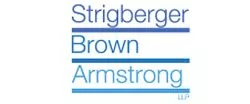On April 19, 2018 the Ontario Court of Appeal reversed the trial decision in MacIvor v Pitney Bowes, finding that the LTD policy in question covers claims that arise during the course of an employee's employment, even if, as occurred in this case, the employee did not discover the claim for many years and had quit and started employment elsewhere in the meantime.
Mr. MacIvor suffered a severe back injury and a traumatic brain injury while participating in a company event while employed with Pitney Bowes. He was off work for four months post-accident and upon returning to work he struggled to perform at the same level he had pre-accident. Pitney Bowes reduced his work responsibilities overtime but the plaintiff continued to struggle and eventually quit.
Mr. MacIvor subsequently obtained employment with Samsung but, after less than a year there, he was terminated as his work was sub-par due his ongoing disabilities as a result of the accident.
The Court found that Mr. MacIvor only discovered the ongoing and permanent nature of his disabilities after Samsung terminated him. At that point, he made a claim under Pitney Bowes' LTD policy.
An agreed statement of facts was submitted at the initial trial, with the parties agreeing that Mr. MacIvor was totally disabled from the time of the initial injury.
In rejecting the lower court's decision that coverage ends when the employee ceased to be actively employed (ie when he resigned), the Court of Appeal held that the termination provisions did not exclude coverage for undiscovered disability claims that originated during the employee's employment stating:
To so conclude would leave former employees in an untenable position of having no disability coverage from either their former or new employer. Such a result would be contrary to the very purpose of the disability insurance and the plain meaning of the coverage provision.
However, this alone did not resolve the issues between the parties in this case. Entitlement was still subject to the policy requirements to provide timely proof of claim and commencement of the action within the relevant limitation period.
Pursuant to the policy, proof of claim was required "within 90 days of the date benefits would begin". Despite the passage of more than four years since the accident, and the finding that Mr. MacIvor had discovered his claim in August 2009, the Court held that the "the date benefits would begin" was after Mr. McIvor's termination package from Samsung ended plus a month, since LTD benefits are paid in arrears. Despite what appears to be a very generous interpretation of when benefits would begin, Mr. MacIvor still did not file proof of claim within 90 days of this date, but did so about 100 days later instead. Although relief from forfeiture was not raised at trial, the Court of Appeal found it was in the interests of justice to grant relief here, citing a long list of factors, including the fact that Mr. MacIvor was injured during his employment, while covered by an LTD policy; that he did not appreciate the significance of his injury; the Insurer conceded his total disability as of the accident, and; that all of these facts had been known to the parties for years.
The Insurer also argued that the policy had a one-year limitation period to commence legal actions. However, the Court found that the provision also prevented any legal actions until 60 days had lapsed from the written proof of loss. In any event the Court concluded it was unlikely that the one-year limitation period would be upheld, referencing obiter from their 2014 decision of Kassberg v Sun Life Assuantce Company of Canada, 2014 ONCA 922 (CanLii), 124 O.R. (3d) 171.
All in all a very interesting decision, in circumstances that are unlikely to occur too often. However, Insurers, it may be time to revisit your policies to ensure they don't provide for unintended exposure.
McIvor v Pitney Bowes, 2018 ONCA 381 (CanLII) http://canlii.ca/t/hrkrn
The content of this article is intended to provide a general guide to the subject matter. Specialist advice should be sought about your specific circumstances.


